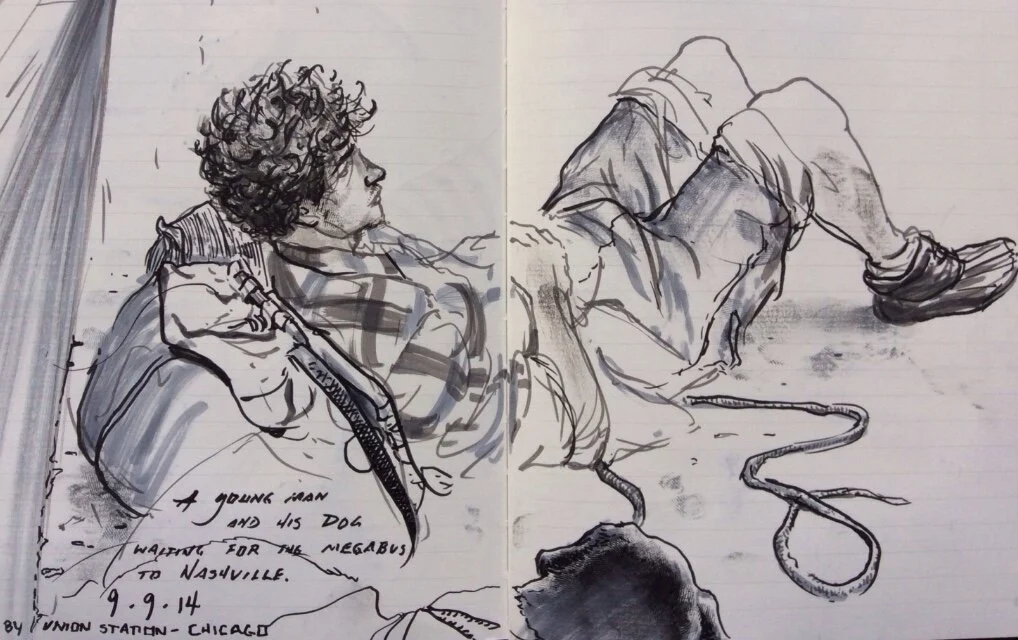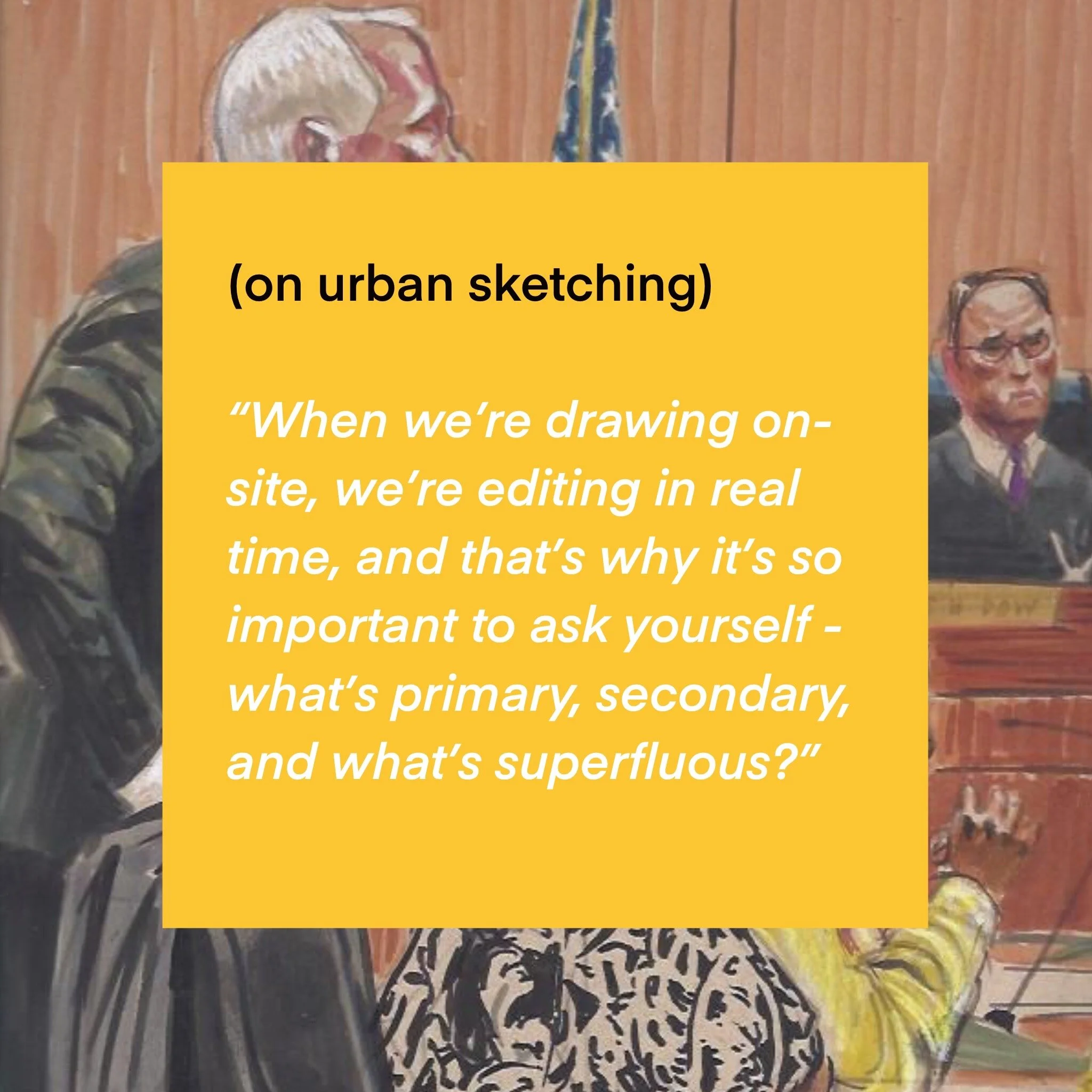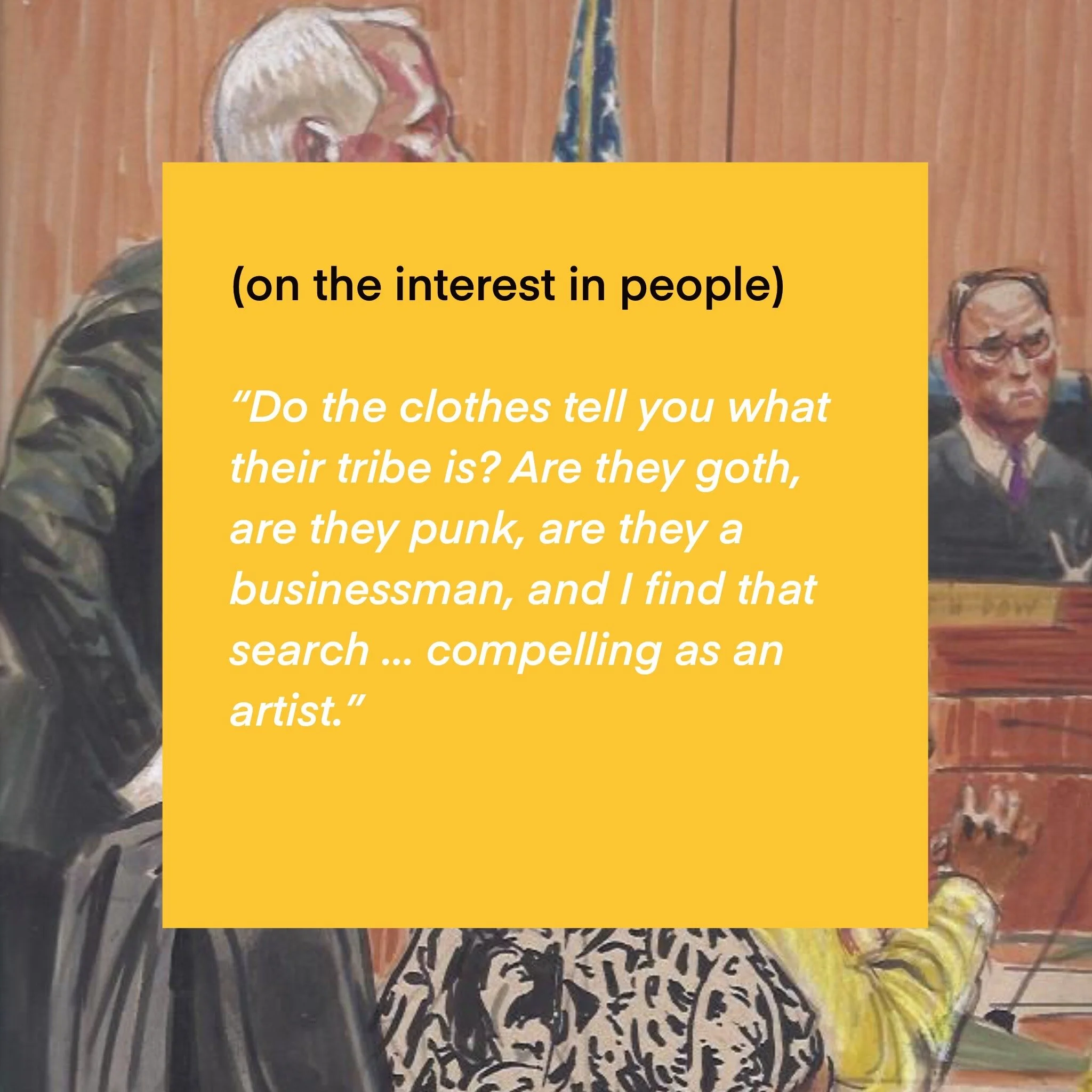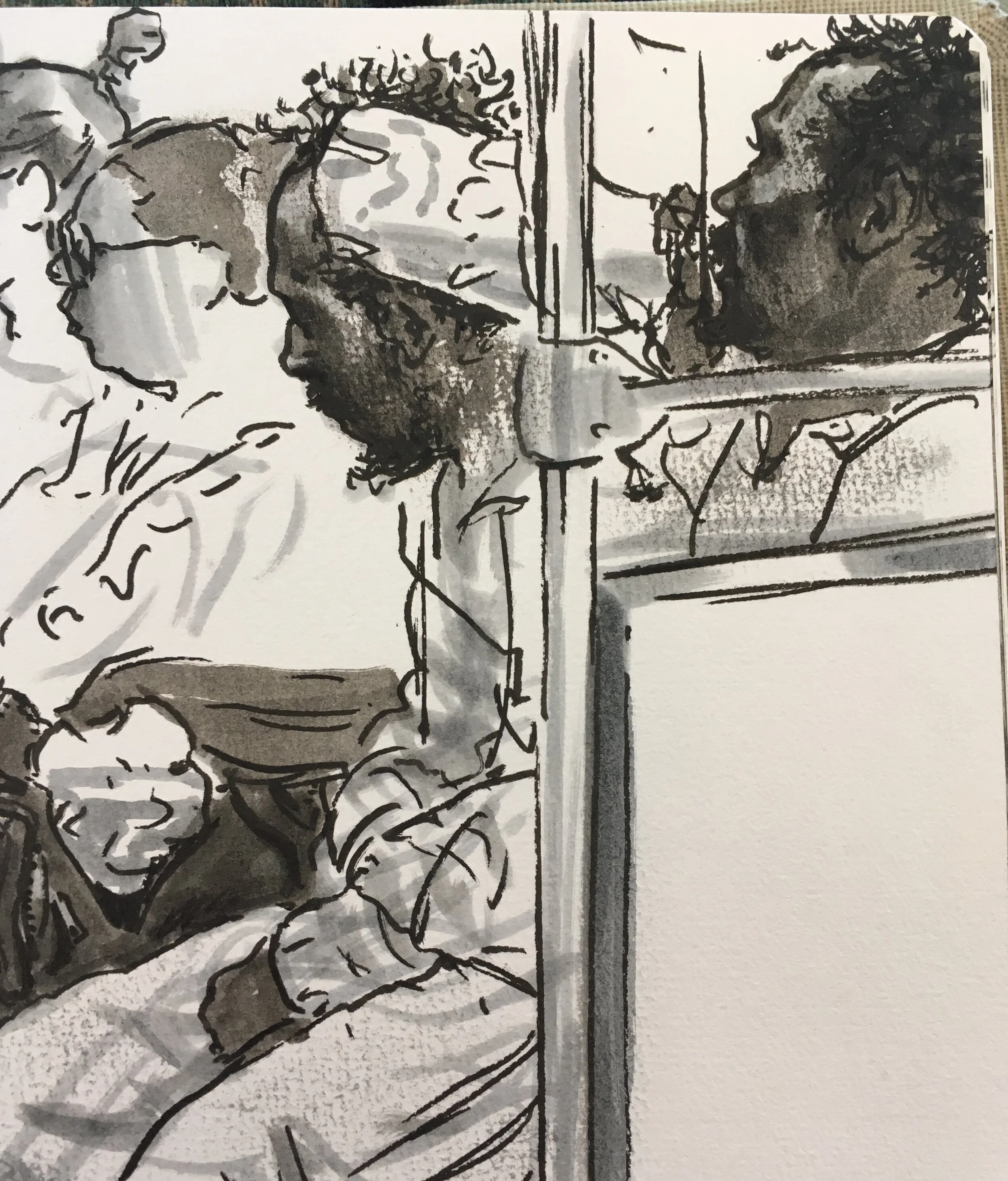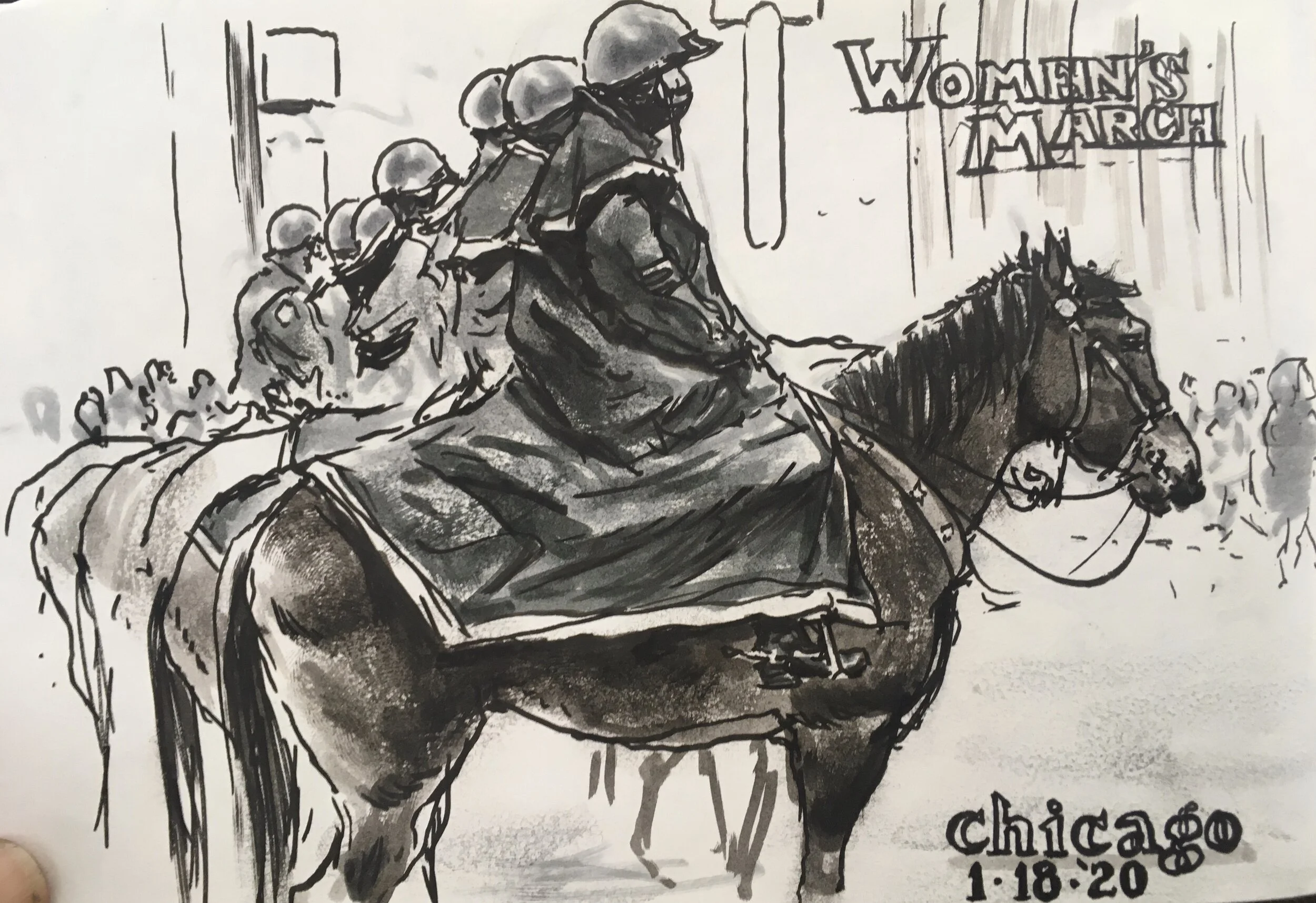Ep 5 - Revealing Character with Donald Owen Colley
I speak with artist Donald Owen Colley about the things he draws and says inside his sketchbooks. I am pleased to call Don a good friend with whom I have drawn many times. Every time we get together to draw, we talk about all kinds of things. This episode is also a bit like that. I ask him about the ways in which he finds character and beauty in his urban surroundings, while not shying away from the ugly aspects of our world.
Follow Don’s work on IG or www.buttnekkiddoodles.com.
Listen on your choice of streaming service!
Below is a summarized transcript, and links related to our discussion.
TRANSCRIPT
02:50 - Nishant asks how Don gets started on a blank page
Don talks about childhood and early influences - comics, and making stories through art.
15:00
“Comics had to guide your eyes, tell a story, be compact, be about composition … and that’s where the whole thing of what’s relevant comes into play, and you have to ask yourself - What am I doing?”
Don refers to comic influences like Dagwood, Peanuts. Discusses Art Spiegelman and the idea of “Co-mix”, comics as a coexistence of words and drawings to communicate complex ideas.
20:40 Nishant asks about Donald’s interest in drawing from observation.
26:40
Don explains how USk is not just about drawing accuracy but also about engaging with the drawing on an intellectual and emotional level.
Don and then Nishant talk about the importance of drawing people to ‘complete’ any urban sketch.
31:20 Donald talks about the Vitruvian Man and the classical importance of the human body as a unit of measurement.
“Since 1976, I’ve walked out the door with sketchbooks. I switched majors from science to art…”
Drawing helps Don bring focus to his easily distracted mind.
How seeing the city as a sketcher makes him question the purpose of the urban environment, its hostility to people that are vulnerable.
46:00
“I do think in terms of composition as well… and if a page is really hideous, I’ll keep trying to push it … is the concept good, is there room for revision, can I learn something from playing on it again?”
“Some sketchbooks are just free-flowing … like free jazz… there’s no reason why I can’t come back into some of them … (like a 16 track) we need another guitarist, let’s get somebody in here and add to this..”
“I kind of like that the flaws are there. I tell you who I was in that moment’s time. That’s that drawing’s job.”
Nishant asks how Donald prefers to go out to draw, with what mindset and what tools?
59:15 Nishant asks about Donald’s concept of sketchbooks
“[In the pages of a sketchbook] you get to see the mind at work … pentimento … you can see a mind mulling something … and that has always been exciting for me.”
“If you hesitate and then you pick up again, you notice that little bump in the line… it has a strange character about it, it looks like an encephalograph.. In other words, you could see him breathe, his heart beat… there are times when the materials help to describe who you are, and how you’re feeling … and that’s what’s so nice about sketchbooks that they can be revealing about the mindset of the artist at that time.”
“Sketchbook becomes a document about the thought process”
How a sketch is malleable and subjective, and if that makes it superior to photos
“Sometimes a single image is so powerful that even a brief exposure to them has got immense sustain ... but the nice thing about a sketchbook, being able to orchestrate, manipulate and edit is invaluable at times.”
75:00 Do you see something inherently different when you capture a building or a person?
Nishant asks about the cadaver drawings
“Photography was the frozen look… whereas art is the sustained look.”
“One of the most compelling things about drawing to me is that it slows you down, there is a contemplation, there is a being in the moment, there is a continued engagement... You are using your hands such that the tool becomes another bone in your hand.”
Last question - why should a non-artist try drawing from observation?
“When you’re done, there’s this personality on the page. So I kind of encourage people to just engage with the world around them.”
I would love to hear what you think of this episode. Did it inform or inspire you in any way?
